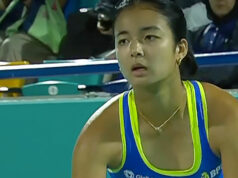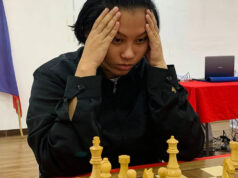In the National Basketball Association bubble, the Heat were the favorites of the working class for a reason: they never took a second off. From opening to final buzzer of any given game, they could be relied on to scrap and scrape, to clamp and claw, to push and pounce. They played every possession as if it were the last, leaving nothing in the tank and understanding its significance in the grand scheme of things. They had a living, breathing culture to protect, to live by, to live up to, and darned if they were going to fail because of lack of effort. Which, in the final analysis, was why they always — always — exceeded themselves.
In retrospect, the Celtics should have known the Heat would be an extremely tough out. Their competition had two All-Stars who willingly played roles, and role players who confidently acted like All-Stars. They had superior talent, true, but they were up against a whole that routinely proved greater than the sum of its parts. And, really, having just survived a grueling semifinal-round series against the equally resolute Raptors, they should have learned their lesson. Said to be the best teacher, experience was instead ignored in their case through a combination of cockiness and hubris. And so they found themselves crashing out of the conference finals for the third time in four years.
Perhaps the Celtics simply had the misfortune of running into a bad matchup. To argue that the Heat were little more than that would, however, be tantamount to dabbling in delusion. After all, the fifth seeds overwhelmed the Pacers and, even more tellingly, the league-leading Bucks before facing them. Yet, they had nary a sense of urgency, particularly with outcomes on the line; they snatched defeat from the throes of triumph in Games One and Two, and then, after an inspired Game Five seemed to give them the formula for success, promptly abandoned it with their season on the line in Game Six.
Depending on perspective, the Celtics hold a glass that is either half full or half empty. They have an outstanding front office, a topnotch coaching staff, and personnel boasting of complementary skill sets — all of which underscore their ascent as a matter of when and not if. At the same time, there is cause to contend that they’ve underachieved; they had grand opportunities to make hay while the sun shone, and with the shadow of LeBron James no longer looming over them, only to emerge empty-handed for the last two years. Now, they have a more mature Giannis Antetokounmpo — not to mention the rightly credentialed Raptors and Heat — to contend with.
If nothing else, the Celtics have youth on their side. Jayson Tatum and Jaylen Brown, their best players, have yet to peak, and, in time, the two will know the value of employing their strengths with a sense of urgency and purpose. The flipside, of course, is that they’ve already been through more than enough challenges to make good on their promise. They can’t keep on saying they’ll do better next time because, at some point, perhaps even in the near future, there will no longer be a next time.
Anthony L. Cuaycong has been writing Courtside since BusinessWorld introduced a Sports section in 1994. He is a consultant on strategic planning, operations and Human Resources management, corporate communications, and business development.



